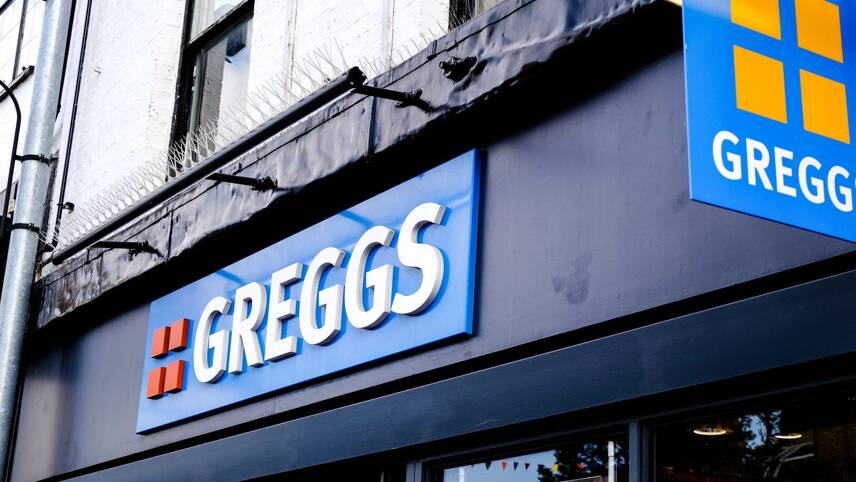Register for free and continue reading
Join our growing army of changemakers and get unlimited access to our premium content

Greggs is working towards net-zero operations by 2035 and a net-zero value chain by 2040
Greggs has this week published its latest sustainability report, detailing progress towards its 2025 goals listed under the “Greggs Pledge”.
The Greggs Pledge includes a commitment to procuring 100% renewable electricity and to be “well on the way” to carbon-neutrality by 2025. In the longer term, Greggs is aligning with the British Retail Consortium’s roadmap to net-zero operations by 2035 and value chains by 2040.
As the company nears the halfway mark to its 2025 goals, it has reflected on the milestones to date while also setting new targets to be achieved in 2023.
Greggs notes that it has opened 789 Breakfast Clubs, feeding more than 49,000 children every school day. Additionally, manufacturing food waste has been reduced by 10% while redistribution of unsold food in shops has increased by a further 10% in 2022.
The company also opened its first Eco-Shop last year and has implemented sustainability solutions from that shop in more than 250 stores.
For 2023, Greggs has announced plans to implement sustainability elements at 400 shops, equating to 17% of its total real estate. Additionally, Greggs will reduce manufacturing food waste by a further 10%.
The company has also confirmed that 98% of electricity usage will come from renewable sources and 30% of the gas used across operations will be from renewable sources by the end of the year.
Greggs’ chief executive Roisin Currie said: “When we first launched The Greggs Pledge, we committed to being transparent about – and accountable for – the areas where we believe we could drive the most change in making the world a better place. I am pleased to report that we are on track to meet each one of our ambitious targets that we set out to achieve by the end of 2025 making us both a stronger and better business.
“As we look to the year ahead, we are in a strong position to continue to make significant progress. By giving good food a second chance and redistributing it to those in need and reducing food waste, to implementing initiatives that directly tackle climate change, like continuing to switch to renewable energy, and ensuring we are committed to workplace diversity and inclusivity, we are driving initiatives to make the world a better place.”
The company confirmed plans in its previous sustainability report to publish new, science-based climate goals. Greggs spent time in 2021 working with the Carbon Trust to measure the entirety of its Scope 3 (indirect) emissions for the first time. This process revealed that the bulk of the company’s indirect emissions – 75% – are attributable to ingredients and packaging.
Greggs confirmed that the new Scope 3 data will enable it to publish new science-based climate targets. The targets have seen been approved by the Science Based Targets initiative to reduced Scope 1 and 2 emissions by 46.2% by 2030 from a 2019 baseline and to reduce Scope 3 emissions from purchased goods and services by 46.2% within the same timeframe.
edie spoke with Gregg’s first head of sustainability Paul Rhodes last year to get his insight on leveraging behaviour and technology changes in the low-carbon transition. Click here to read that interview.


Please login or Register to leave a comment.